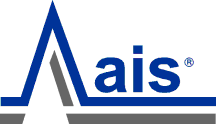

Applied Information Systems (AIS) announced today that it has begun the general release of XESS 4.1, a major revision of the popular spreadsheet and related development tools for Linux, UNIX, OpenVMS, and Windows NT systems.
XESS 4.1 spreadsheet is the first version to support the xsBasic Macro Option. The xsBasic language is an object-oriented version of BASIC with objects designed specifically for use as the macro facility for the XESS Spreadsheet.
Other major enhancements with this release include:
XESS 4.1 supports user-configurable 3-D workbooks with up to 10 million rows, enhanced display and print formatting, international locales (including multi-byte languages), full Y2K compliance, Web enablement, and a high level of compatibility with the Excel and Lotus spreadsheet products.
"XESS 4.1 and xsBasic are major steps toward our goal of providing the best spreadsheet products with the most features and the best performance across the largest number of platforms," said Arthur Coston, president of AIS. "Early users of this new version are enthusiastic about the macro facility and the improved inter-operability with other spreadsheet products."
XESS 4.1 is supported on the widest variety of enterprise servers and workstations, with applications freely interacting across platforms. For example, an XESS add-in (e.g. the Xess/Trade extension for real-time financial market data) can seamlessly provide real-time market data from a UNIX server to a mixture of workstations using Linux, UNIX, OpenVMS, and Windows NT.
XESS 4.1 is available worldwide from AIS and its partners for:
Applied Information Systems, headquartered in Chapel Hill, North Carolina, is a 26-year-old supplier of software products and solutions. AIS is a technology leader in network-enabled spreadsheet solutions for end-users, corporate environments, system integrators, and third-party developers. Its XESS spreadsheet technology is used daily by ten's of thousands of users as a general-purpose spreadsheet or integrated into the most challenging applications -- designing automobiles and airplanes, monitoring spacecraft, deploying troops, controlling the power grid, and trading securities.